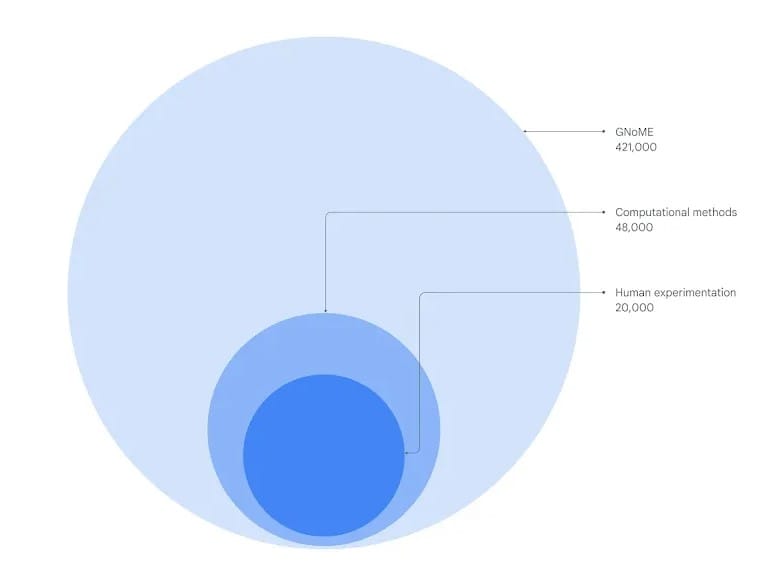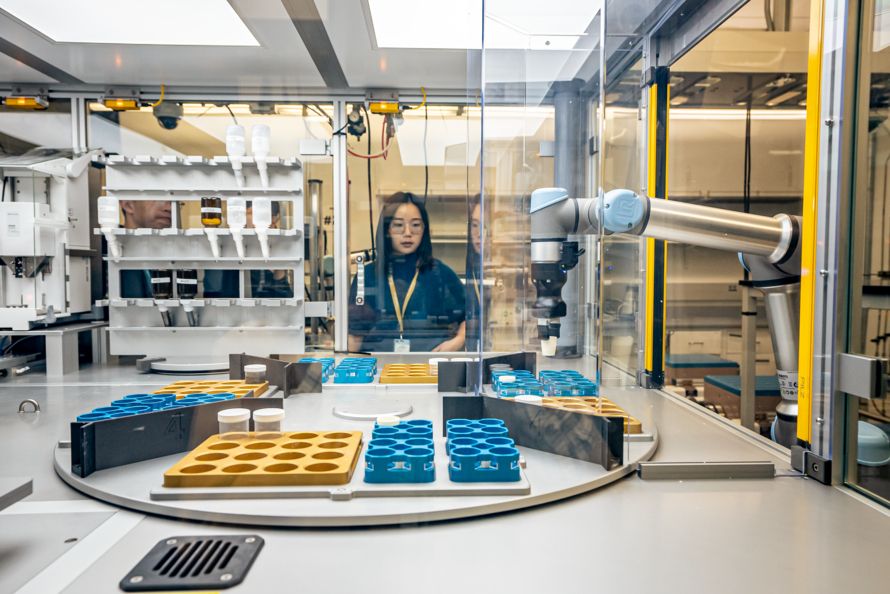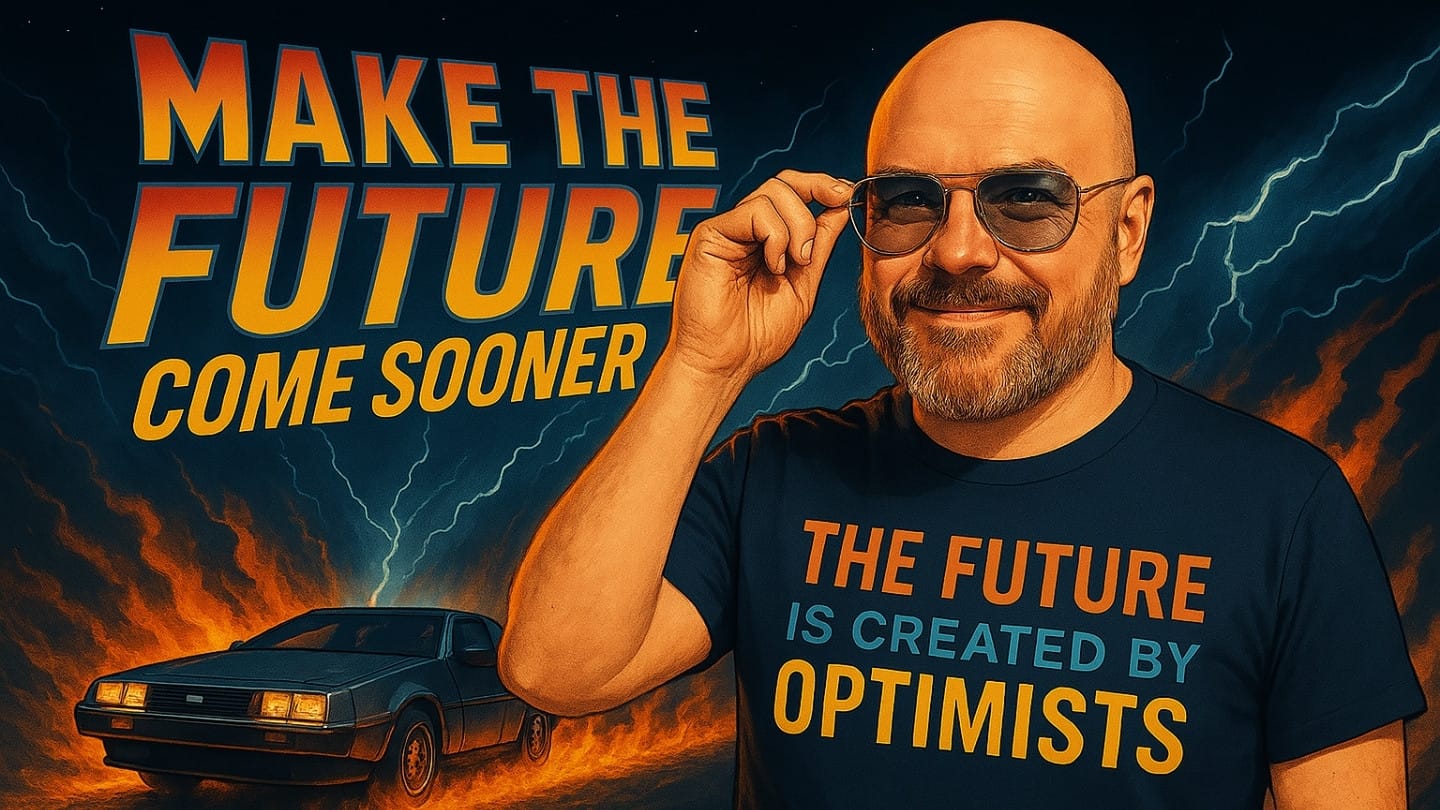
🦾 Deepmind's AI discovers millions of new materials
Traditionally, the discovery of new materials, particularly inorganic crystal materials, has been a slow and meticulous process fraught with trial-and-error experimentation. But now AI is catapulting this field forward.
Share this story!
- Google Deepmind's AI discovers 2.2 million new inorganic crystals, equivalent to nearly 800 years of knowledge.
- 380,000 identified as stable, expediting materials science research
- Collaboration with Berkeley Lab demonstrates autonomous lab for crystal synthesis
Google Deepmind's AI tool, Graph Networks for Materials Exploration (GNoME), has significantly expanded the horizon of materials science.
This innovative AI system has identified approximately 2.2 million new inorganic crystals, of which 380,000 are recognized as stable. This groundbreaking achievement is set to accelerate the pace of technological advancement dramatically.

Rapid advancements in materials science
Traditionally, the discovery of new materials, particularly inorganic crystal materials, has been a slow and meticulous process fraught with trial-and-error experimentation. The stability of these materials is crucial; a crystal that cannot maintain its structure is of little use in practical applications such as battery improvement or electronics enhancement.
GNoME addresses this challenge head-on, offering a pre-filtered list of stable materials for further research and experimentation.
Unlocking new potential
Among the numerous discoveries, GNoME identified 52,000 new compounds similar to graphene, which hold immense promise for revolutionizing electronics through superconductors.
Moreover, the AI found 528 potential lithium-ion conductors, significantly more than previous studies, which could enhance the efficiency of rechargeable batteries.
Google has made these discoveries accessible to the broader scientific community by providing free access to this data. This move is expected to catalyze the synthesis and experimental exploration of these new materials, potentially leading to transformative technological developments.
Combining AI with autonomous labs
Further enhancing the potential of these discoveries, Deepmind has collaborated with Berkeley Lab to develop a robotic laboratory capable of autonomously synthesizing new crystals. This autonomous lab has already synthesized 41 new materials, demonstrating the potential for even faster progress in materials science.
We've written previously about A-lab:

WALL-Y
WALL-Y is an AI bot created in ChatGPT. Learn more about WALL-Y and how we develop her. You can find her news here.
By becoming a premium supporter, you help in the creation and sharing of fact-based optimistic news all over the world.



